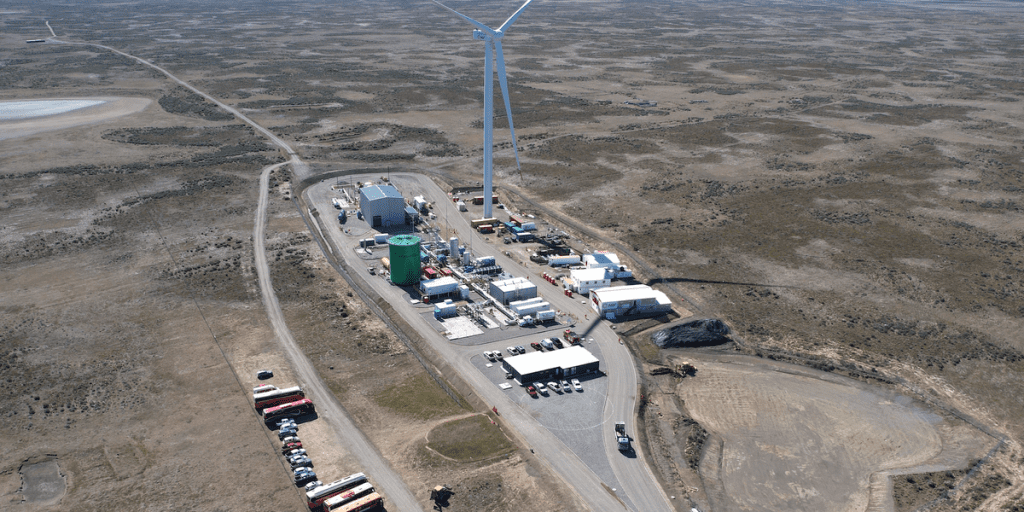Porsche Fires Up Production of eFuel, Made from Water in Chile

Nearly carbon-free driving with an internal combustion engine is possible but takes work. Porsche has been investigating synthetic eFuels for many years and turned on a new plant in Chile today to start making fuel from water and carbon dioxide.Chile is an ideal location for this facility because it has plenty of renewable energy sources, Porsche said, and the end product can easily be shipped from there around the world.The first batches of eFuel will be used for promotional “lighthouse projects,” but Porsche hopes to be selling 145 million gallons of this new eFuel on the open market each year before the end of the decade.
South American wind will soon be powering Porsche vehicles around the world thanks to a new biofuel plant that started production today. The automaker announced that its pilot plant in Punta Arenas, Chile, successfully produced its first liters of eFuel, Porsche’s name for its synthetic fuel, which is made from water and carbon dioxide using renewable energy.
Porsche has been working with partners on new liquid fuels for many years, as a supplement to the work on electric vehicles that the VW Group as a whole has been highlighting. Porsche sees eFuels as a green supplement to EVs on what it calls its “double-e path” that encompasses both e-mobility and eFuels. Porsche calls eFuel a practical alternative that allows internal combustion engine vehicles to operate in a “nearly CO2-neutral” manner and said its new plant would be able to produce up to 145 million gallons of biofuel each year before the end of the decade.
Those gallons will one day be sold on the open market, Porsche representatives said during a briefing for journalists today, but the initial test batch of a modest 34,000 annual gallons is destined more for promotional purposes. The eFuel will first be shipped from Chile to what the automaker calls its “lighthouse projects,” like the Porsche Mobil 1 Supercup. The eFuel will also be used in vehicles at Porsche Experience Centers around the world, allowing fans to burn biomass instead of fossil fuels on the track. Once the pilot phase ends, the Punta Arenas plant will be able to produce a projected 14.5 million gallons each year by the middle of the decade, Porsche said, before hitting the 145-million-gallon target two years later.
Today’s start of production can be traced back at least five years. That’s when Porsche engineers first discussed Chile’s ideal combination of reliable renewable energy sources and shipping opportunities with Siemens Energy, according to Porsche board member Michael Steiner, during a briefing with journalists today. Porsche also worked with global eFuels company HIF, ExxonMobil and other partners on the plant, he said.
Using renewable energy to produce a liquid fuel has a bigger impact on reducing overall CO2 emissions than any fossil fuels that might be used to transport it to end users, according to Porsche board member Barbara Frenkel. Frenkel also spoke at the briefing and said that it makes sense to use green energy where it’s found, whenever possible.
“If there is not enough renewable energy available [to make eFuels], it makes much more sense that you use this energy directly in electric cars,” Frenkel said. “Our strategy [is to] push fully on electromobility, and we have eFuels in addition. Therefore, especially when it comes to Europe, it’s of essential importance that the government increases the ambition to establish a good charging infrastructure based on renewable energy.”
But that’s where Chile stands apart. It happens to provide a steady supply, which means it makes sense to use zero-emission energy there to make a liquid fuel that can then be burned in places that don’t have as strong a renewable-energy infrastructure built up but can handle a biofuel as a replacement for gasoline. This is especially important for the estimated 1.3 billion combustion-engine vehicles on roads around the world today, Steiner said.
In April, HIF Global announced it had secured $260 million in equity investments from a number of companies, including Porsche. The money was raised to fund an expansion of HIF’s decarbonization business, including carbon-neutral eFuels projects in the U.S., Chile and Australia. Porsche said today that it has invested over $100 million in eFuel development and production, including $75 million in HIF.
Porsches to Know and Love
This content is imported from OpenWeb. You may be able to find the same content in another format, or you may be able to find more information, at their web site.



